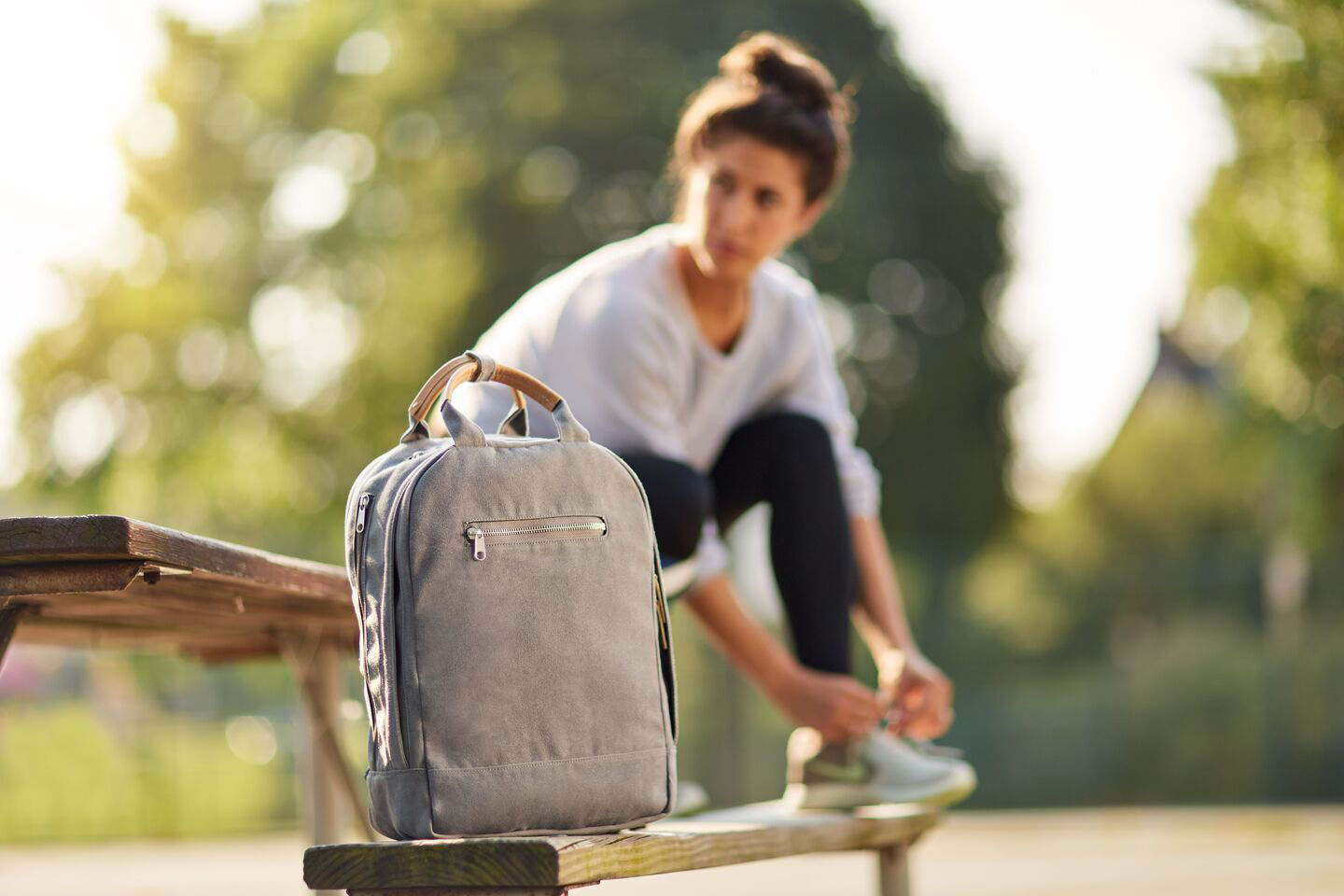A Backpack Made From 25 Plastic Bottles
Over the last five years, Thread International has worked to save 41 million plastic bottles from the ocean by turning them into a fabric used by several large companies including, Marmot, Reebok, and Timberland. But that’s not all. Thread’s Haiti based operations have created over 1,500 jobs for people living in poverty since opening their collection center. Thread pays workers for the collected plastic, which then gets turned into new materials.
In an effort to create an even greater impact, Thread International has just launched a pre-sale campaign for their backpack on both Kickstarter and Indiegogo. By manufacturing their own product, they hope to remove even more plastic and create more jobs for underserved populations. Each pack is made from 25 plastic bottles collected in Haiti and is assembled by skilled workers in their Pittsburgh office.
The backpack offers tons of utility with its hidden and integrated pockets, yet has a sleek and simple design. Their rigorous iterative design process and customer insights are a great example of how a Human Centered Design approach can create an amazing product that meets the needs of their customers. Perhaps most impressive is that a product that does this much good is offered at a very accessible price of $119 for their 17L bag and $129 for their 20L bag.
If you are someone who appreciates good design and wants a bag that helps the environment and has a positive social impact, then this is a great option. But do keep in mind that delivery will be made several months into 2019.
The Need For Recycled Textiles
Thread’s decision to make a big pivot in their business model for the sake of making a larger impact intrigues me. Certainly being a material supplier isn’t sexy, but such companies are literally the fabric of an industry (pun intended) and therefore have the potential to be highly impactful on the environment based on their practices, not to mention highly lucrative.
Does the world need another boutique backpack company? Maybe not, but the world definitely needs materials that reduce water usage and support a waste collection stream. This is the hard work -the work that the big brands can’t do - that makes real change happen.
Contrary to what most people assume, the US has a massive recycling problem, especially now that China is no longer accepting our recyclables. Creating high-end goods that make use of our plastic and waste problem could be a great solution. How could Thread International expand into offering fabrics from other sources of regenerative materials? How can this value be better communicated to brands and to the consumer? These are pertinent questions to ask. Perhaps launching their Backpack brand is needed to prove demand for their material.
Domestically, I see an opportunity to rethink our relationship with waste by rewarding consumers to participate in direct collection. Solutions like Plastic Bank’s Blockchain solution could inspire people to submit high quality plastics for recycling in order to get credit toward regenerative products.
Overall, I am astonished with all the good that Thread International is doing. Building a social and environmental impact supply chain is not easy, let alone servicing significant brands with a new material. The early success of their backpack proves that the demand is there for these products - and that alone is exciting. Congrats to Thread!








